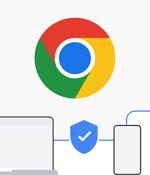Security News

Google on Monday released security updates to patch a high-severity flaw in its Chrome web browser that it said is being actively exploited in the wild.Tracked as CVE-2023-3079, the vulnerability has been described as a type confusion bug in the V8 JavaScript engine.

Google has removed from the Chrome Web Store 32 malicious extensions that could alter search results and push spam or unwanted ads. Cybersecurity researcher Wladimir Palant analyzed the PDF Toolbox extension available from Chrome Web Store and found that it included code that was disguised as a legitimate extension API wrapper.

Google has tripled the full reward amount for the first security bug report that includes a functional full chain exploit of its popular Chrome browser. Six months of higher rewards for a Chrome full chain exploit.

Google announced today that bug bounty hunters who report sandbox escape chain exploits targeting its Chrome web browser are now eligible for triple the standard reward until December 1st, 2023. "The full chain exploit must result in a Chrome browser sandbox escape, with a demonstration of attacker control / code execution outside of the sandbox. The exploit scenario must be fully remote and the exploit able to be used by a remote attacker," Google explains.

To address this issue and provide practical prevention solutions, Criminal IP, a CTI search engine developed by AI SPERA, launched a comprehensive Chrome extension named "Criminal IP Phishing scams link checker" on May 22, 2023. A web browsing guard against Phishing, Malware, and Ransomware based on AI. This Criminal IP's Chrome extension offers real-time scanning of websites worldwide, using AI-based detection to identify recently created phishing sites.

Logowatch Google plans to retire the padlock icon that appears in the Chrome status bar during a secure HTTPS web browsing session because the interface graphic has outlived its usefulness. Today's Chrome lock icon currently oversees a broad portfolio of functions.
In September 2023, Google Chrome will stop showing the lock icon when a site loads over HTTPS, partly due to the now ubiquitous use of the protocol. "We redesigned the lock icon in 2016 after our research showed that many users misunderstood what the icon conveyed. Despite our best efforts, our research in 2021 showed that only 11% of study participants correctly understood the precise meaning of the lock icon," the team explained.

Google announced today that the lock icon, long thought to be a sign of website security and trustworthiness, will soon be changed with a new icon that doesn't imply that a site is secure or should be trusted.While first introduced to show that a website was using HTTPS encryption to encrypt connections, the lock symbol is no longer needed given that more than 99% of all web pages are now loaded in Google Chrome over HTTPS. These also include websites used as landing pages in phishing attacks or other malicious purposes, designed to take advantage of the lock icon to trick the targets into thinking they're safe from attacks.

Researchers are warning about an infostealer mimicking a ChatGPT Windows desktop client that's capable of copying saved credentials from the Google Chrome login data folder. ChatGPT has not released an official desktop client, but this bogus version looks remarkably similar to what one would expect.

Google has made available a new tool for Google Workspace admins and security teams to make an assessment of the risk different Chrome extensions may present to their users: Spin.AI App Risk Assessment. The tool is available through the Chrome Browser Cloud Management console and provides admins with valuable insights into potential security threats.